- Home
- Patrick Carman
Beyond the Valley of Thorns Page 10
Beyond the Valley of Thorns Read online
Page 10
Somewhere in the twists and turns along the wharf she stopped and peered around a blind corner. Here she squeezed my hand harder and whispered in my ear.
“Do not be afraid,” she said, and then she motioned for me to look around the edge with her. Twenty yards off was a high wall made of stone, and within it was fashioned a massive gate of iron. Before the gate stood two ogres armed with enormous swords. Beyond the gate was a dark path, and beyond the path a series of torches that climbed into the darkness. Against the night was a single spire, rising into the stars, a threatening shadow invading the sky.
“It’s the Dark Tower,” she whispered. “Grindall’s castle.”
“Why did you bring us here?” I said, unsure as we stood so close to the enemy. She held my hand tighter still. One pull and it would be over; I would be out in the open and helpless.
She turned to both of us, her former beauty clear to me even in the darkness. Though beaten down and aged by poverty, she had a perfect face, and the tears in her eyes made me want to rescue her more than anything I’d ever wanted before.
“He is a wicked man, led by wicked forces,” she whispered, her voice trembling with emotion. “No one knows the things that happen in the Dark Tower, only that these things are evil.”
She paused and looked around the corner once again, then back at us. “The giants grow angrier and more violent by the day. They grow more ill, more rotten. And Grindall grows more impatient for whatever it is he is searching for. It consumes him.”
I looked her squarely in the face, my own voice surprisingly firm and reassuring as I spoke. “I know what it is he searches for, and why,” I said, no longer afraid of what I might reveal.
“So do I,” said the woman, and then she winked at me and smiled coyly for a moment. I could not help but return the smile at seeing the hope in her face.
“We should go,” said John, his hand firmly gripping the sword he had kept hidden, his eyes darting this way and that, searching for trouble from where it might come.
The woman spun me around, and again we were whipping down the streets back toward the water’s edge. While we ran I told her my name and John’s, and she told us hers was Margaret. I couldn’t say whether Margaret was taking us on the same route or a different one — the narrow streets and passages wound in every direction and the facades all looked familiar, but then everything was a slum built of stone and wood and to see one building was to see them all.
We came to a wooden door with a round knocker shaped like a horseshoe. Margaret took the knocker in her fingers and rapped three times, a thick wooden sound echoing down the street. A moment later the entrance creaked open. We crept inside, and the door was shut and locked behind us.
CHAPTER 18
BALMORAL
There was a fire burning. A few small candles — two of them on a big old table, another one melting on a pile of wood in a corner — also added to the dim light in the small room. A little girl sat on the floor, playing with onion peels dropped from her mother’s lap. The girl was carefully tearing the papery peels into dolls and clothing for them to wear. She and her mother stopped what they were doing and stared at us, the girl clinging to her mother’s leg, the mother gaping at the sight of us.
There was also a man in the room, skinny with a bushy black beard. He stood next to the fire with a poker in his hand. It was he who had opened the door, after which he had stared in disbelief at Margaret for bringing us. He had big eyes, sallow cheeks, and a mop of dark hair on top of his head.
To our right were the other three women we had seen by the lake. One was washing a brown plate in a wooden barrel, another was plucking the feathers off a small bird, and the third was hanging wet clothing on a wire that passed to the side of the fireplace. A heavy oblong table, marred with age, sat in the very center of the room, strewn with roots and potatoes, wooden dishes and pitchers. Two long, thick benches sat along the table, and Margaret, who had gone rather pale, motioned for John and me to sit on one of them; then she went over to the man, and the two of them whispered while everyone else in the room pretended to go back to what he or she had been doing.
“I like your dolls,” I said to the girl. She seemed the easiest one to approach, even with the mother towering above her. “I never thought of making them that way. You must be a clever girl.”
She beamed at me, and then looked at her mother as if to say, “She’s nice, may I play with her?” Before she got her answer, the man at the fire moved to the center of the room and looked at us with a wary eye.
“My name is Balmoral and this is my home.” He waved his hand around the room in a grand gesture. “Grindall’s had us working until after dark most nights, so dinner’s come late indeed. You’re welcome to stay as long as you like, and if you haven’t eaten, we’ll have a kettle of onion and magpie soup within the hour.”
He placed his hand to the side of his mouth and leaned closer, then whispered, “She’s mostly onion and water, but you’ll get a nibble of meat here and there if you’re at the front of the line.” And then he smiled just a little, and I could see that he was a hospitable sort, glad of the unexpected company, curious about the reason for our visit.
“Enid, take your wash bucket and walk down to the lake and back. Make sure nobody saw these two come in.”
A young woman, one of the three from before, dashed across the room, picked up an old wooden bucket, and moved toward the door. Margaret removed the wood plank that barred the door and opened it. When Enid had gone, Margaret pushed the door shut and put the plank back on its iron claws, locking us in once again.
When the door was shut I began thinking about the boiled magpie. This, mixed with the strong smell of onions and body odors, made me put my hand over my mouth and lower my head. The whole world smelled thick and pasty. I wished I could get back out in the open air next to the lake and breathe.
“I know, I know. The onions are a bit ripe. Not so ripe as the lot of us, though, don’t you think?” Balmoral burst out laughing, and I could see that one of his front teeth was missing. The women in the room seemed to think him quite funny, and they began to laugh along with him. Soon enough I was laughing, too. Even John, still nervous about our predicament, expressed some amusement as he smiled and looked around the room.
“You’ll find we’re a happy bunch in the nighttime,” continued Balmoral, bringing himself under control with a wipe of a tear from his eye and a dying spasm of chuckles. “We’ve not much to live for, but we have one another and our privacy when the sun goes down. We live as best we can amid the reign of Grindall.”
The man walked back over to the fire and poked it with his gaff. Sparks flew up and lit the room for an instant, and then Balmoral put his finger in the black kettle that hung over the fire and pulled his hand away quickly.
“I do believe we’re ready for those onions.” He wiped his fingers along the brown sleeve of his tunic, then he looked affectionately at the woman peeling onions.
“This here’s my wife, Mary,” he said, and as he continued I learned that the young girl making onion paper dolls was Julia, his daughter. Margaret was his younger sister by two years, and the other women were Gwen, Rose, and the recently departed Enid. When he finished introducing these last ladies he added, “Them three’s widows.” Then he bowed reverently, rose, and looked again at them.
“An awful sickness ran through the place a year ago and took one in ten of us.” Balmoral was momentarily downcast; clearly some of those who had died had been his friends, and he missed them. But he wasted little time on the sadness of the past, his mood brightening a moment later.
“Well then, if what Margaret tells me is true, we’ve got a bit of talking to do, haven’t we?” he said. Mary stood behind him, dumping onions into the pot with a wet plop.
The next hour passed quickly as John and I told the Castalians everything we knew. We started with Warvold’s story and our journey, then the legends of Elyon and Abaddon, and finally our plans to rescue Renny and
overthrow Grindall. All the while Balmoral drank ale and stood by the fire, occasionally taking a large wooden spoon to sample the soup. He was very inquisitive and cheerful as we spoke. “Ogres you call ‘em?” “You say his name was Warvold?” “You have a stone, one of the special stones?” — on and on he went with his questions as we waited for the soup to be finished.
Eventually Balmoral took the big black pot from where it hung over the fire and placed it on the stone floor before him.
“The thing about the giants — the ogres — they weren’t so bad before they … well, I assume you’ve seen ‘em?” Balmoral asked as he looked around the room. John told him the last detail he needed to know, that we had on our side the last of the giants, a true giant, one not possessed by Abaddon, one who would fight to the death to free Castalia.
This bit of information seemed of particular interest to Balmoral. As he scooped up bowls of steaming soup, he looked at John with a seriousness I had not yet seen in him.
“Then it’s true,” he said, a half-filled bowl of soup in one hand. “The legend comes to pass on this very night.”
The flickering light danced in the whites of his enormous, sunken eyes, and Balmoral stared off into the fire for a long moment of contemplation, the big wooden spoon dripping watery soup into the kettle. Then he seemed to awaken from his trance and began pouring more bowls of soup.
We gathered around the table, little Julia making sure to find a spot next to me. I was surprised to hear them offer a prayer to Elyon, lifting up their hands in the air and thanking him, asking for his return. They did not plead for their freedom or cry out in anguish. Instead they were thankful for a watery bowl of magpie soup. When the prayer was finished they ate slowly, drank their ale, and smiled often. I tickled Julia in the ribs and made her jump; she laughed and leaned her head against my arm, and as we played at big and little sister, I ventured a question to the Castalians.
“You believe Elyon is real?”
Balmoral started to answer, but Margaret gently touched his forearm and offered her thoughts instead.
“Thousands have suffered and died to build that castle of beasts,” she said, wiping her mouth with the flap of her apron, her voice shaking as it had before. “We have been in the midst of an immense evil for a very long time, and no one has come to help us. But, in its way, the evil has been a comfort, as if by its very presence we know the stories that have been passed on are true. Elyon is among us, close by, waiting in the shadows, until the cruelty runs its course and he returns to claim us.”
Even in the midst of her affecting answer I remained unsatisfied. “Yes … but how do you know he will return?” I asked. “He’s been away an awfully long time. Long enough that many from where I come don’t remember him at all.”
Margaret raised her spoon full of broth and tipped it, the beads of liquid dripping back into her bowl.
“Where does the water come from? Who makes this air I breathe in and breathe out? I don’t know how these things are made, and yet I live.”
She paused then, thinking, before she continued:
“Evil rules my people, but the giants become monsters just as the stories said they would. And you — you come with the last of the stones around your neck, just as the ancient stories say. And where do these stories come from? Either they are a wicked trick of Abaddon or they are the truth. I choose to believe they are the truth. The time has come for Abaddon to fall, for Elyon to return.”
“They can be killed, you know,” said Balmoral, smacking his lips between sips of broth. I looked at him, not immediately understanding what he meant. “The ogres, they can be killed.” He took another big slurp of soup and a slug from his big metal pint of ale. “Just need to put your blade in the right spot. Only problem is the spot is a bit difficult to get at, since it’s at the top of their heads.”
I took a mouthful of my own soup, which was not as bad as I feared it might be. Mary had added wildflower, cypress root, and ginger, and I found myself enjoying the sharp flavor of the onions despite the occasional chewy bit of magpie.
“They wear chain mail at their chest and back under all that wretched black clothing, metal plates over the shoulders, legs, and neck,” Balmoral continued. “They also have helmets, but their sorry heads are so full of open sores and scabs they can’t stand to wear ‘em. I’ve seen an ogre up close when one of ‘em was dunking his head into a vat of water. I tell you, it’s a bloody mess. That’s where the damage is the greatest, on top of their heads. It’s just a big open wound up there; near drives them crazy with anger.”
He took three more spoonfuls of soup and slurped them loudly before looking up from his bowl to notice we were all staring at him. His bulging, comical eyes darted to and fro, a drop of slippery broth sliding down his hairy chin.
“Oh, yes, a blade in the top of the head would do it, I think. I’m almost sure it would,” he said, and then, sensing he had for himself an audience, he went on. “I have a thought that might clarify things a bit more, if you like.”
Seeing no objections, Balmoral looked longingly at his half-eaten bowl of broth, set aside his wooden spoon, and ran a ragged sleeve across his mouth.
“The thing you must never forget is the order in which things were made,” he began. I was already confused, and Balmoral could tell. He ran his hand over his bearded face and started again.
“If Elyon really did create everything from the start, he would have special knowledge no one else would have. We didn’t show up until quite a long while after the Seraphs and the giants and The Land of Elyon itself, so Elyon certainly knows more about us than we know even about ourselves. But wouldn’t that also be true of other things he created, especially the first things?”
Balmoral was beginning to sound wiser than I’d expected when I’d set eyes on him.
“On Abaddon’s side are Grindall and the ogres; these are the things of evil, things like rage, malice, and deceit. But we cast our lot on a different side, a side controlled by Elyon, who is just, wise, and kind.”
Balmoral looked once again at his bowl, was overcome with hunger, and lifted it to his mouth, neglecting the spoon entirely as he gulped down the last of what remained.
“Ahhhh. So much more pleasant to talk on a full stomach, don’t you think?” He picked up his mug of ale, took a mighty swig, and belched outrageously. Then he continued with his thoughts.
“Now, from where we’re sitting, Grindall and the ogres look insurmountable. It seems as though taking on such a monstrous foe would be foolhardy. But let me go back to my original statement and show you why things may not be entirely as they seem.”
He looked around the room, giving pause to the moment, while Julia squeezed my hand and leaned yet closer to my lap.
“The thing you must never forget is the order in which things were made,” he repeated. “For you see, Elyon created not only The Land of Elyon and people like you and me. A long time ago he also created Abaddon, and who is to say that when he did he might not have done something unexpected?”
Balmoral lowered his voice almost to a whisper.
“In the same way that you or I might form a bit of clay into a figure in our hands, Elyon made Abaddon as the brightest of the Seraphs — as a friend and a helper. If Elyon was wise and planned ahead — which I must assume he did — isn’t it possible that he planned for the unlikely event that things might spin terribly out of control? That this once great friend of Elyon might turn on him?”
Balmoral got up from his seat and stood in front of the fire, the light dancing off his silhouette. He took a worn old pipe from the charred mantel and lit it with a stick dipped into the fire. Looking longingly around the room, he blew a puff of smoke up over his head.
“Here we stand,” he continued, “toe to toe against Grindall and a host of beastly giants ready to dash out our brains. And yet there may still be hope. What if Elyon set a trap that would only be sprung if Abaddon turned on him? I believe that is precisely what has happened, and t
his has given us the advantage we were meant to have.”
We were all riveted by what Balmoral was saying. He was a wise man in peasants’ garments, a tooth missing and stinking of sweat, but full of ideas and enthusiasm.
“When Abaddon turned the black swarm on the giants he was lost in a mad rage, and in his cruelty he took all the evil at his disposal and put it into the most powerful creatures he could find. The giants were actually kind in the beginning, but now that they are possessed by Abaddon, what remains in them is only malice, hate, and blind fury.”
We were getting to the end of his tale, and he rushed to the finish from his place next to the fire.
“Ahhhh, but the trap has sprung! The giants cannot contain such evil without having the evil pour from them. It’s too great a darkness for their bodies to hold, and so they are teeming with sores, especially upon the head, where it dances like a fire in their brains.
“The last of the story is not known — it was not revealed to us or to Abaddon. We stand at the edge of what our world was and what it will become. If we do not defeat the ogres and Grindall here and now, Abaddon will spread his sickness like a plague across the land, bringing evil wherever he goes, and his goal will be simple — to destroy all of humankind and drive Elyon out of the Tenth City. Only then will Abaddon’s work be complete.”
“You speak like a man I once knew, a very wise man,” I said, thinking Balmoral sounded something like Warvold in his more reflective moments.
“I believe that Abaddon has fallen into the trap, a trap that makes his mighty army vulnerable to a strike. With a bit of planning I think we can defeat the ogres, all but the ten who guard the Dark Tower. I’m afraid those might be a bit of a problem.”

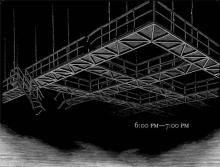 Eve of Destruction
Eve of Destruction Phantom File
Phantom File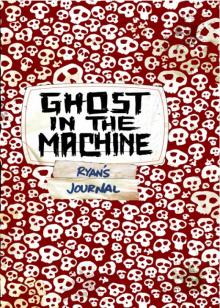 Ghost in the Machine
Ghost in the Machine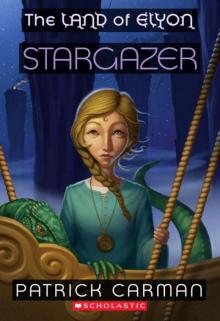 The Land of Elyon #4: Stargazer
The Land of Elyon #4: Stargazer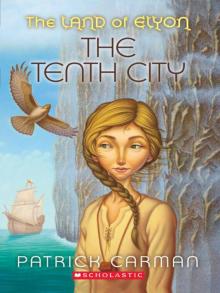 The Tenth City
The Tenth City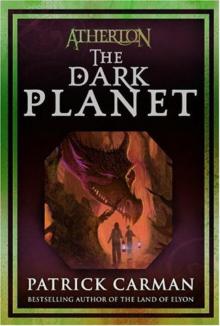 The Dark Planet
The Dark Planet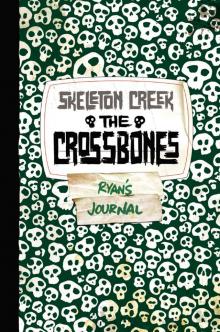 The Crossbones
The Crossbones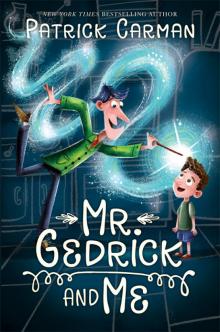 Mr. Gedrick and Me
Mr. Gedrick and Me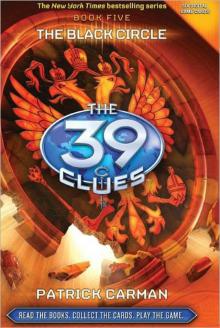 The Black Circle
The Black Circle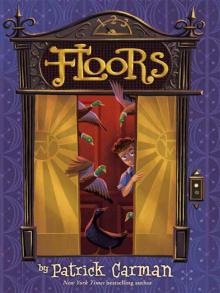 Floors
Floors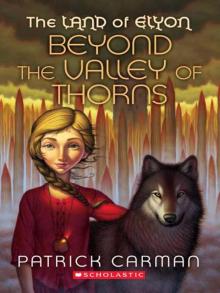 Beyond the Valley of Thorns
Beyond the Valley of Thorns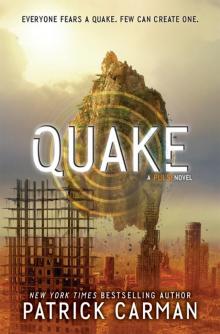 Quake
Quake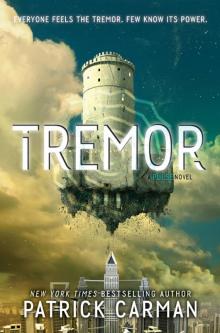 Tremor
Tremor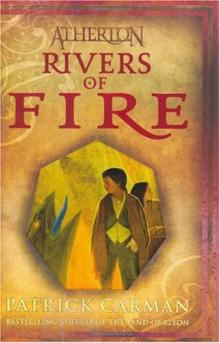 Rivers of Fire
Rivers of Fire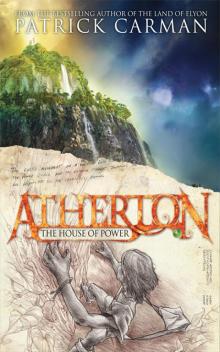 The House of Power
The House of Power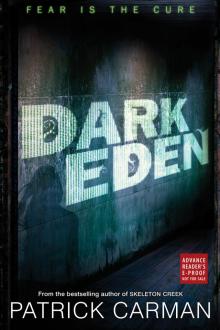 Dark Eden
Dark Eden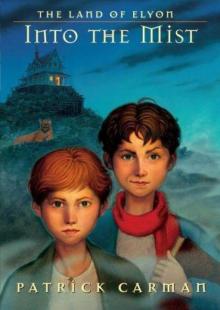 Into the Mist
Into the Mist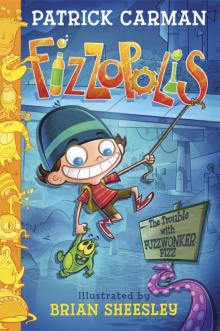 Fizzopolis: The Trouble With Fuzzwonker Fizz
Fizzopolis: The Trouble With Fuzzwonker Fizz Pulse
Pulse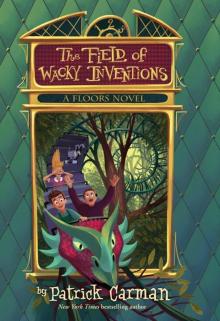 3 Below
3 Below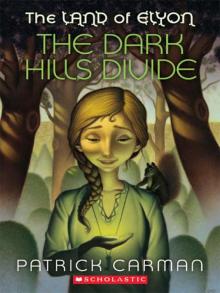 The Dark Hills Divide
The Dark Hills Divide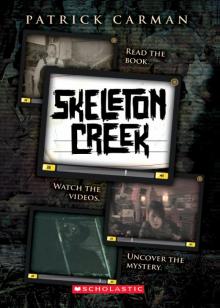 Skeleton Creek
Skeleton Creek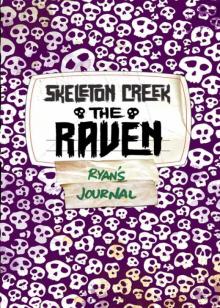 The Raven
The Raven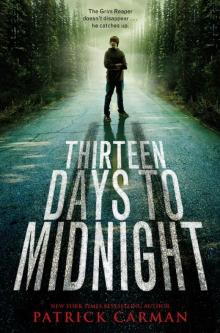 Thirteen Days to Midnight
Thirteen Days to Midnight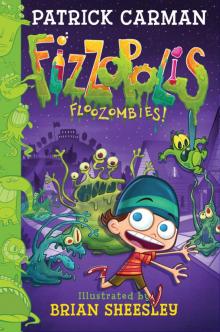 Fizzopolis #2: Floozombies!
Fizzopolis #2: Floozombies!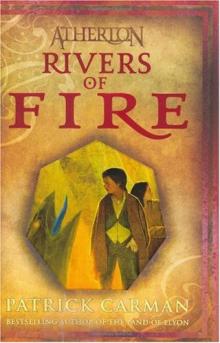 Rivers of Fire (Atherton, Book 2)
Rivers of Fire (Atherton, Book 2)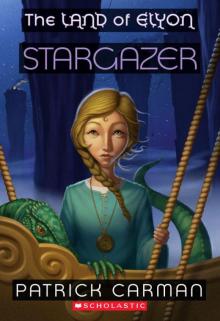 Stargazer
Stargazer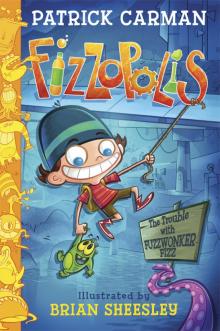 The Trouble with Fuzzwonker Fizz
The Trouble with Fuzzwonker Fizz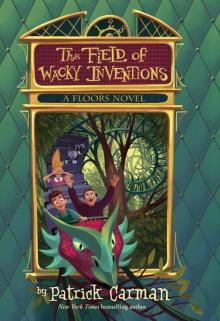 Floors #3: The Field of Wacky Inventions
Floors #3: The Field of Wacky Inventions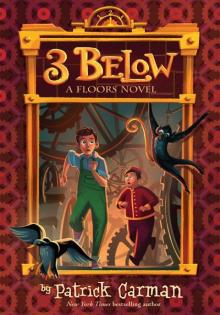 Floors #2: 3 Below
Floors #2: 3 Below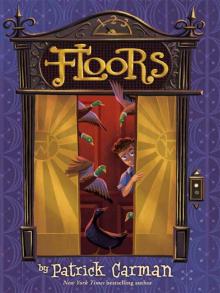 Floors: Book 1
Floors: Book 1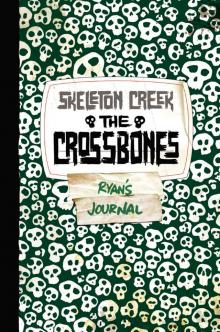 Crossbones
Crossbones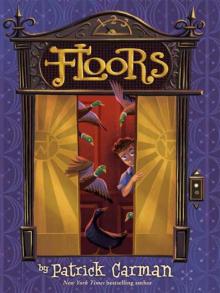 Floors:
Floors: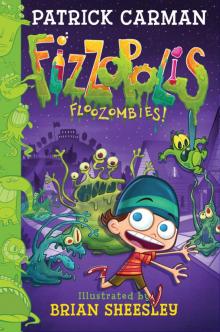 Fizzopolis #2
Fizzopolis #2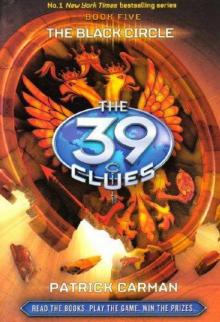 The Black Circle - 39 Clues 05
The Black Circle - 39 Clues 05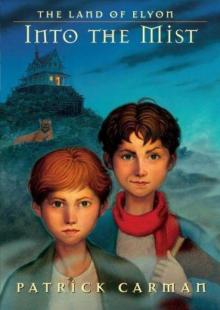 Into The Mist (Land of Elyon)
Into The Mist (Land of Elyon)